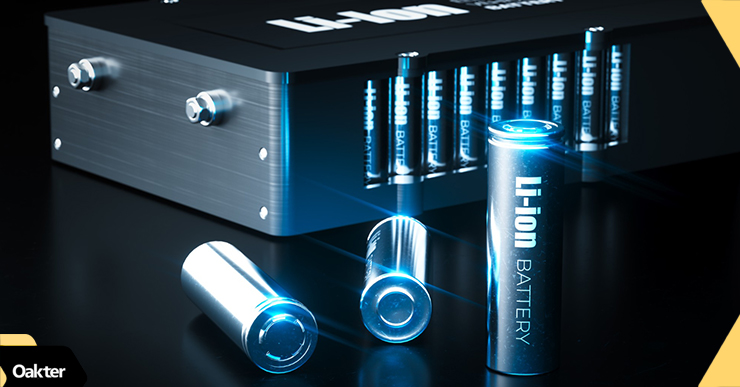
How to Choose Suitable Battery Management System Companies for Your Energy Needs
Reliable battery management system companies can give you freedom and mobility—whether on the road or out to sea in a sailboat. They provide energy for many appliances and gadgets, including lights, refrigerators, navigational aids, communication tools, and more.
In general, batteries can quickly lose their charge and become prone to unexpected failure once they are exposed to rapid temperature changes during their lifespan. Therefore, a suitable battery management system (BMS) can make a huge difference in keeping the health of your battery pack intact.
Choosing the best BMS company for your energy needs might be challenging, given the wide range of battery management system companies on the market. To help you in this process, this article will walk you through the essential criteria for choosing the best BMS provider to meet your energy needs.
What is a Battery Management System?
A battery management system (BMS) is a technology for maintaining a battery pack, which is an assembly of battery cells electrically arranged in a row-by-column matrix configuration to deliver a targeted range of voltage and current for a period of time against expected load scenarios.
A BMS often offers the following supervision:
- Monitoring the battery
- Protecting the batteries
- Determining the battery’s operating status
- Enhancing battery performance continuously
- Reporting operational status to external devices
Choosing the Right Battery Management System Company

Let’s understand the factors to consider when choosing suitable battery management system companies for your energy requirements.
1. Identify Your Energy Requirements
It’s critical to comprehend your specific energy requirements before comparing battery management companies.
- Choose the battery type: Lithium-ion, lead-acid, or another
- Select the size of the energy storage system that is needed for the application: home, business, or industrial
- Consider your long-term energy objectives, including scalability and backup power needs. You can choose a BMS company that can offer solutions specifically catered to your demands by having an in-depth understanding of your energy requirements.
2. Evaluate Expertise and Credibility
Experience counts when it comes to battery management solutions. Look for battery management system companies with a solid track record and plenty of industry experience. The reputation of a business may reveal a great deal about the quality of its products and services.
Read testimonials, reviews, recommendations, etc., from companies or people who have used their BMS systems, and read client evaluations and testimonials. A credible business will more likely deliver reliable, long-lasting BMS systems that fulfil your energy requirements.
3. Analyse Technical Knowledge
A BMS is a sophisticated system that needs technical know-how to build, construct, and maintain. Make sure the BMS company you select has a group of qualified technicians and engineers who are experienced in software development, energy management, and battery technology.
Designing a BMS that maximises battery performance, extends battery life, and assures safety requires technical skill.
4. Integration and Compatibility
The existing energy storage system and any future enhancements should easily integrate with your BMS. The ability of the BMS to communicate effectively with inverters, batteries, and other energy management components depends on compatibility.
Check with the battery management system companies if they can offer solutions that work with the existing infrastructure or if they have modification options that meet your integration requirements.
5. Security and Adherence
When working with energy storage devices, safety comes first. Verify the BMS company’s compliance with industry safety norms and rules. To confirm that a company’s products adhere to safety and performance standards, look for certificates from organisations like BIS (Bureau of Indian Standards). Credible battery management system companies will put safety first and offer evidence of compliance.
6. Future-Proofing and Scalability
Your BMS must be able to scale as the energy requirements change. Find out if the company’s BMS solutions are scalable.
Can the BMS support future increased energy capacity or additional battery banks? With the aid of a scalable BMS, you can change your energy usage without having to redesign the entire system.
7. Control and Monitoring Features
The energy storage system’s monitoring and control are two of a BMS’s primary functions. Analyse the BMS company’s monitoring and control features.
A reliable BMS should provide real-time information on battery condition, temperature, charge level, and other factors. It should also allow you to set customised parameters and alarms for efficient energy management.
8. User-Friendly Interface
Easy operation and maintenance of your BMS depend on a user-friendly interface. The BMS dashboard and user interface should be simple to use and enable you to easily monitor and manage your energy system. Ensure the BMS software is simple to use and offers clear visualisations of important data.
9. Customer Service and Support
Consider the customer support and service the battery management system companies provide. Ask questions such as:
- What type of technical assistance is offered in the event of problems or emergencies?
- Do they offer training for your staff on how to use and maintain the BMS?
Prompt and trustworthy customer service is essential to ensure your energy system runs without problems.
10. ROI and Cost
Finally, consider the BMS’s price and return on investment (ROI). While it’s vital to stick to your budget, it’s also crucial to prioritise the savings and long-term advantages that an effective BMS may provide.
Calculate a quality BMS’s potential energy savings, battery life extension, and maintenance cost reductions to estimate its total value.
Conclusion
Choosing one of the best battery management system companies for your energy requirements necessitates careful evaluation of a number of criteria.
An informed choice can be made by determining the energy needs, evaluating a company’s experience and reputation, assessing technical expertise, ensuring compatibility, prioritising safety and compliance, and taking into account scalability, monitoring features, user-friendliness, customer support, and cost.
Remember that the right BMS can significantly impact your energy storage system’s performance, efficiency, and longevity, making it a crucial investment for any energy-conscious individual or business.
Advanced Indian ODM Oakter’s smart battery management technology optimises the life of the battery pack through continuous monitoring and effective cell balancing. It also determines the accurate state of charge and state of health of the battery packs.
For more information, reach out to us here.

